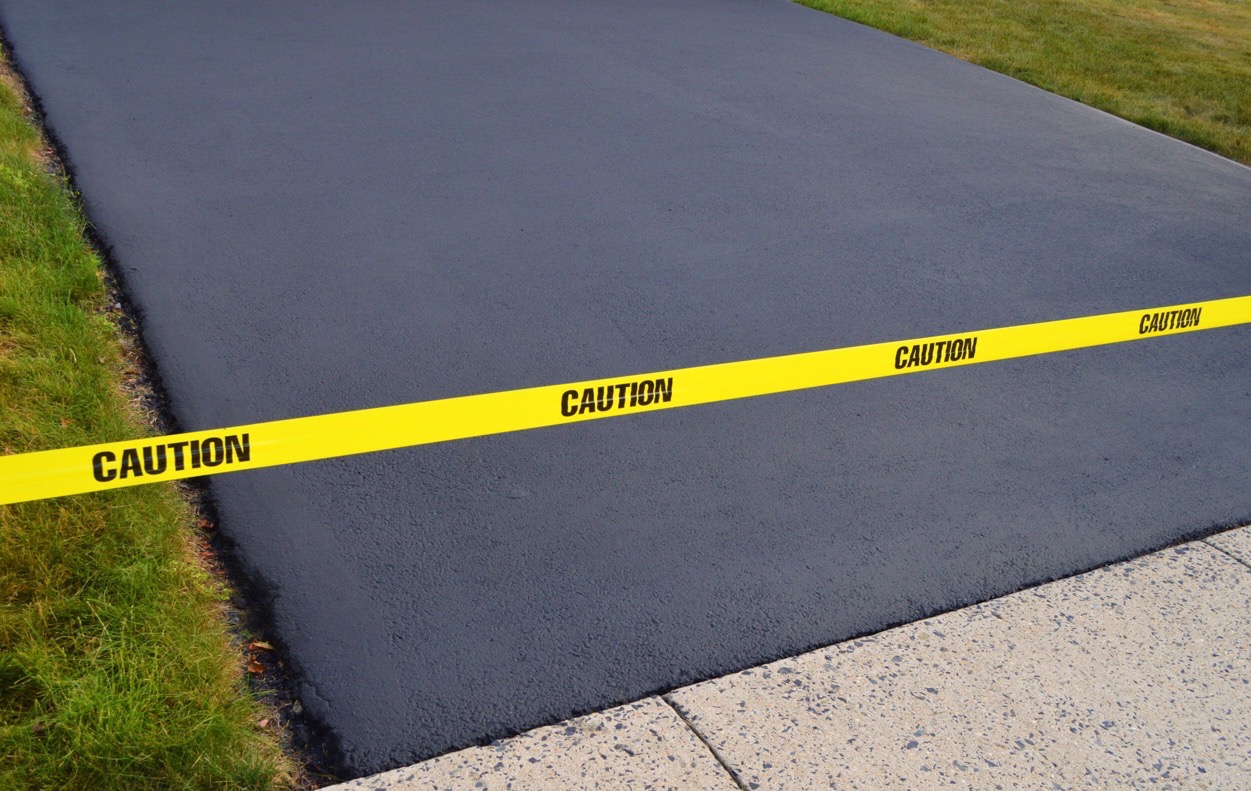

Articles
When Can A New Asphalt Driveway Be Sealed
Modified: February 23, 2024
Find out the ideal timing for sealing your new asphalt driveway in this informative article. Get expert advice and tips on driveway maintenance.
(Many of the links in this article redirect to a specific reviewed product. Your purchase of these products through affiliate links helps to generate commission for Storables.com, at no extra cost. Learn more)
Introduction
When it comes to installing a new asphalt driveway, one of the important steps to consider is sealing it. Sealing a new asphalt driveway not only enhances its appearance but also protects it from various external factors such as moisture, UV rays, and chemicals. However, knowing the right time to seal a newly installed asphalt driveway is crucial to ensure its longevity and durability.
In this article, we will explore the factors to consider before sealing a new asphalt driveway, the timeframe for sealing, signs indicating when your driveway is ready for sealing, the benefits of sealing, potential risks involved, and recommendations for sealing a new asphalt driveway.
Before we dive into the details, it is important to note that the process of sealing an asphalt driveway involves applying a protective layer of sealant on the surface. This sealant helps to fill in small cracks, prevent water penetration, and provide an extra layer of protection against the elements.
Key Takeaways:
- Timing is crucial when sealing a new asphalt driveway. Waiting 6-12 months allows the asphalt to cure, ensuring proper adhesion and durability of the sealant.
- Sealing offers protection against moisture, UV damage, and extends the lifespan of the driveway. Proper preparation, high-quality sealants, and professional consultation are key for a successful sealing process.
Read more: When Can You Walk On Driveway After Sealing
Factors to Consider Before Sealing a New Asphalt Driveway
Before you decide to seal your new asphalt driveway, it is essential to consider a few factors:
- The age of your asphalt driveway: Allow your newly installed asphalt driveway to cure and harden for a certain period of time before applying any sealant. This period can vary depending on various factors such as weather conditions, temperature, and the specific type of asphalt used. It is recommended to wait for at least 6-12 months before sealing a new driveway.
- Weather conditions: Ensure that you choose the right weather conditions for sealing your driveway. Avoid sealing on extremely hot or cold days, as it may affect the proper curing and adhesion of the sealant. The ideal temperature range for sealing is between 50°F and 80°F.
- Surface condition: Inspect your new asphalt driveway for any visible cracks, holes, or damage. It is important to address these issues before applying the sealant. If major repairs or patching are required, it is recommended to consult a professional asphalt contractor.
- Proper preparation: Adequate preparation is crucial before sealing a new asphalt driveway. This includes cleaning the surface thoroughly, removing any dirt, debris, or loose materials. Additionally, fill in any visible cracks or potholes using a suitable asphalt patching compound.
Timeframe for Sealing a New Asphalt Driveway
As mentioned earlier, the timeframe for sealing a new asphalt driveway can vary. It is generally recommended to wait for a minimum of 6-12 months before sealing, allowing sufficient time for the asphalt to cure and harden.
During the curing process, the asphalt undergoes chemical changes and loses some of its volatile compounds. Sealing too early can trap these volatile compounds, leading to an improper curing process and potential damage to the driveway. Therefore, it is crucial to be patient and let the asphalt driveway fully cure before applying any sealant.
Key Takeaways:
- Timing is crucial when sealing a new asphalt driveway. Waiting 6-12 months allows the asphalt to cure, ensuring proper adhesion and durability of the sealant.
- Sealing offers protection against moisture, UV damage, and extends the lifespan of the driveway. Proper preparation, high-quality sealants, and professional consultation are key for a successful sealing process.
Read more: When Can You Walk On Driveway After Sealing
Factors to Consider Before Sealing a New Asphalt Driveway
Before you make the decision to seal your new asphalt driveway, there are several important factors to take into consideration. These factors will not only ensure the effectiveness of the sealant but also contribute to the overall durability and longevity of your driveway. Let’s explore these factors in more detail:
- Age of the driveway: It is crucial to allow your newly installed asphalt driveway to fully cure and harden before applying any sealant. The curing time can vary depending on factors such as weather conditions, temperature, and the specific type of asphalt used. In general, it is recommended to wait for at least 6-12 months before sealing a new driveway. This waiting period allows the asphalt to settle, releasing any volatile compounds, and achieving its maximum strength.
- Weather conditions: Choosing the right weather conditions for sealing your driveway is essential. Sealing should be avoided on extremely hot or cold days as it can affect the adhesion and curing process of the sealant. The ideal temperature range for sealing an asphalt driveway is between 50°F and 80°F. Additionally, make sure the weather forecast does not predict rain or heavy humidity for at least 48 hours after application.
- Surface condition: Before sealing your new asphalt driveway, it is important to inspect the surface for any cracks, holes, or damage. Addressing these issues beforehand is crucial to prevent further deterioration. Small cracks can be filled with a suitable crack filler, while larger cracks or potholes may require professional repair. Additionally, ensure that the surface is clean and free from dirt, debris, and loose materials. Proper preparation is key to a successful sealing job.
- Asphalt quality: The quality of the asphalt used in your new driveway plays a significant role in determining when it is ready for sealing. Higher-quality asphalt tends to cure faster and may require sealing sooner, whereas lower-quality asphalt may need more time to cure and strengthen. Consulting with the asphalt contractor who installed your driveway can provide valuable insight into the best timing for sealing.
By considering these factors, you can ensure that your new asphalt driveway is in the optimal condition for sealing. Taking the time to assess these aspects will help you make an informed decision and maximize the benefits of sealing your driveway.
Timeframe for Sealing a New Asphalt Driveway
When it comes to sealing a new asphalt driveway, timing is crucial. Applying a sealant too early can result in improper adhesion, trapping volatile compounds, and affecting the overall durability of the driveway. On the other hand, waiting too long may leave the surface vulnerable to damage from moisture, UV rays, and other external factors. So, what is the ideal timeframe for sealing a new asphalt driveway?
The general recommendation is to wait for a minimum of 6-12 months after installation before applying a sealant. This waiting period allows the asphalt to fully cure and harden, ensuring the best results from the sealing process. However, it’s important to note that this timeframe can vary depending on various factors:
- Weather conditions: The climate in your area plays a significant role in the curing time of the asphalt. In warmer regions with higher temperatures and lower humidity, the curing process may be faster, allowing for sealing to be done closer to the 6-month mark. In cooler or more humid regions, it may be necessary to wait closer to the 12-month mark for the asphalt to cure sufficiently.
- Type of asphalt: Different types of asphalt may have different curing properties. Some asphalt mixtures contain additives that promote faster curing, while others may require more time to reach their maximum strength. Consulting with your asphalt contractor or supplier about the specific type of asphalt used can provide insight into the appropriate timeframe for sealing.
- Exposure to elements: The level of exposure to elements like sunlight, rain, and freeze-thaw cycles can affect the curing process. If your driveway receives a lot of direct sunlight or experiences frequent rainfall, it may cure faster. On the other hand, if the driveway is shaded or subjected to adverse weather conditions, it may require a longer curing time.
- Visual signs: Observing the condition of your new driveway can also provide indications of its readiness for sealing. If the surface appears firm, solid, and free of any visible cracks or damage, it is a good indication that the asphalt has cured sufficiently to withstand the sealant. However, if you notice any signs of distress or deterioration, it is recommended to address those issues before proceeding with the sealing process.
Ultimately, it is best to consult with a professional asphalt contractor who can assess the specific conditions of your driveway and provide tailored advice on the optimal timeframe for sealing. They have the expertise and experience to determine when the asphalt has reached the appropriate level of strength and stability for sealing.
By understanding the factors at play and giving your driveway adequate time to cure, you can ensure that the sealing process will be effective in protecting and enhancing the longevity of your new asphalt driveway.
Wait at least 6-12 months before sealing a new asphalt driveway to allow it to fully cure and for any oils to rise to the surface. This will ensure a better bond and longer-lasting seal.
Read more: What Is An Asphalt Driveway
Signs that Your New Asphalt Driveway is Ready for Sealing
Knowing when your new asphalt driveway is ready for sealing is essential to ensure the effectiveness and longevity of the sealant. Sealing too early can result in poor adhesion, while waiting too long can leave the surface vulnerable to damage. So, how can you tell if your new asphalt driveway is ready for sealing? Look for these signs:
- Visual appearance: A clear indication that your new asphalt driveway is ready for sealing is its visual appearance. The surface should have a uniform, smooth, and matte black finish. If the asphalt appears dry, firm, and free of any residual oil or tackiness, it is a good indication that the curing process is complete.
- Touch and tackiness: Lightly touch the surface of the asphalt with your fingertips. If it feels dry and does not leave any residue on your fingers, it is a good sign that the asphalt is ready for sealing. Avoid sealing if the surface feels tacky or sticky, as this may indicate that the asphalt is still curing and the sealant may not adhere properly.
- Crack development: New asphalt driveways may develop small, hairline cracks as they go through the curing process. However, these cracks should be limited and stable. If you notice significant cracks that are widening or spreading, it is important to address them before sealing. Cracks that are actively moving or expanding may indicate ongoing settling and may require professional repair.
- Water beading: Sprinkle a small amount of water on the asphalt surface. If the water beads up and remains on the surface without penetrating or causing any discoloration, it indicates a properly cured and sealed asphalt surface. However, if the water seeps into the asphalt quickly or creates dark spots, it is a sign that the asphalt is not yet fully cured and needs more time before sealing.
- Consultation with professionals: Seeking advice from professional asphalt contractors is always a wise decision when determining if your new driveway is ready for sealing. They have the expertise and experience to assess the condition of the asphalt, consider environmental factors, and provide guidance on the optimal timing for sealing.
It is important to note that while these signs provide a general indication of asphalt readiness, every driveway is unique. Factors such as climate, type of asphalt, and site conditions can influence the curing process. Consulting with professionals will provide the most accurate assessment for your specific situation.
By recognizing these signs and ensuring that your new asphalt driveway is properly cured and prepared, you can proceed with confidence to seal it and enjoy the benefits of enhanced protection and longevity.
Benefits of Sealing a New Asphalt Driveway
Sealing a new asphalt driveway offers a range of benefits that can greatly enhance its appearance, durability, and lifespan. While asphalt is already a durable material, applying a high-quality sealant provides an extra layer of protection. Let’s explore the main benefits of sealing a new asphalt driveway:
- Protection against moisture: One of the primary benefits of sealing an asphalt driveway is its resistance to moisture penetration. By applying a sealant, you create a barrier that prevents water from seeping into the asphalt and causing damage. This protection is particularly important in regions with harsh winters, where freeze-thaw cycles can lead to cracks and potholes from water expansion.
- Prevention of UV damage: Another significant advantage of sealing is the protection it provides against harmful UV rays. Over time, exposure to the sun can cause the asphalt surface to fade, become brittle, and develop cracks. A quality sealant acts as a shield, reflecting and absorbing UV rays, thus helping to maintain the integrity and color of the driveway.
- Reduction in damage from oil and chemical spills: Sealing a new asphalt driveway can also protect it from damage caused by oil spills, gasoline leaks, and other chemical substances. Sealants create a non-porous surface that prevents these substances from penetrating and corroding the asphalt. This not only maintains the appearance of the driveway but also makes cleaning and maintenance easier.
- Enhanced aesthetics: Sealing an asphalt driveway can significantly improve its appearance. The fresh sealant provides a dark and glossy finish, enhancing the overall curb appeal of your property. A well-maintained and attractive driveway contributes to the overall aesthetics and value of your home.
- Extended lifespan: By protecting the surface of the asphalt from various damaging factors, sealing can help extend the lifespan of your driveway. It helps prevent cracks, potholes, and other forms of deterioration, reducing the need for costly repairs and increasing the overall longevity of the asphalt.
- Easier maintenance: Sealed asphalt driveways are easier to clean and maintain. The smooth surface created by the sealant prevents dirt, debris, and stains from penetrating, making regular cleaning more efficient. Additionally, a sealed driveway is less susceptible to weed growth and can be easily swept or rinsed to keep it in good condition.
It is important to note that the benefits of sealing are not limited to new asphalt driveways. Existing driveways can also benefit from periodic resealing to prolong their lifespan and maintain their appearance.
Overall, sealing a new asphalt driveway offers numerous advantages in terms of protection, aesthetics, and longevity. It is a worthwhile investment that will pay off in terms of a beautiful and well-protected driveway for years to come.
Potential Risks of Sealing a New Asphalt Driveway
While sealing a new asphalt driveway can bring numerous benefits, it is important to be aware of potential risks that may arise if the process is not done properly or at the right time. Being mindful of these risks will help you make informed decisions and take the necessary precautions. Here are some potential risks associated with sealing a new asphalt driveway:
- Application too early: Applying a sealant too early can disrupt the curing process of the asphalt, leading to poor adhesion and potential damage to the surface. Sealing before the asphalt has fully cured can trap volatile compounds, hindering the proper curing process and compromising the overall strength and stability of the driveway.
- Application too late: On the other hand, if you wait too long to seal your new asphalt driveway, it can become vulnerable to damage from moisture, UV rays, and other environmental factors. Cracks and other forms of deterioration may develop, requiring costly repairs in the future. It is essential to find the right balance and time the sealing process appropriately.
- Poor surface preparation: Proper surface preparation is crucial before sealing an asphalt driveway. Failing to clean the surface thoroughly or address existing cracks and damage can affect the adhesion of the sealant and result in an uneven appearance. Additionally, if the cracks are not properly repaired, they may continue to expand beneath the sealant, leading to further damage.
- Choosing low-quality sealants: Using low-quality sealants can have negative consequences for your new asphalt driveway. Inferior sealants may not provide adequate protection against moisture, UV rays, and chemical spills, rendering the sealing process less effective. It is recommended to choose high-quality sealants that are specifically designed for asphalt surfaces.
- Improper application: Applying the sealant incorrectly can also result in unsatisfactory outcomes. Uneven application, insufficient coverage, or improper drying time can lead to an uneven appearance, reduced durability, and premature wear. It is essential to follow the manufacturer’s instructions and, if unsure, seek professional assistance to ensure proper application.
- Environmental impact: Some sealants may contain chemicals that can have negative effects on the environment. It is important to choose eco-friendly sealants that minimize the impact on surrounding plants, animals, and water sources. Always read the product labels and opt for environmentally friendly options.
To mitigate these risks, it is advisable to consult with a professional asphalt contractor who has the expertise and experience in sealing new driveways. They can provide guidance on the appropriate timing, recommend suitable sealants, and ensure proper application to minimize potential risks and maximize the benefits of sealing your new asphalt driveway.
By being aware of these potential risks and taking the necessary precautions, you can ensure a successful sealing process that enhances the longevity and appearance of your new asphalt driveway.
Recommendations for Sealing a New Asphalt Driveway
Sealing a new asphalt driveway is a significant step in protecting and preserving its condition for years to come. To ensure a successful sealing process, consider following these recommendations:
- Timing: Allow your new asphalt driveway to fully cure and harden before sealing. The recommended timeframe is typically 6-12 months, but this can vary based on factors such as climate, asphalt type, and site conditions. Waiting for the appropriate curing period ensures optimal adhesion and durability of the sealant.
- Preparation: Thoroughly clean the surface of the driveway before applying the sealant. Remove any dirt, debris, or loose materials using a broom or powerwasher. Address any visible cracks or damage by filling them with a suitable asphalt patching compound. Proper surface preparation ensures better adhesion and a smoother finish.
- Choose the right sealant: Select a high-quality sealant specifically designed for asphalt surfaces. Consider factors such as durability, weather resistance, and environmental impact. Read the product labels and opt for eco-friendly options whenever possible to minimize the impact on the environment.
- Application: Follow the manufacturer’s instructions for the proper application of the sealant. Consider factors such as temperature, humidity, and drying time. Apply the sealant evenly using a squeegee or roller to ensure consistent coverage. Avoid overlapping or excessive application, as this can lead to an uneven appearance and reduced effectiveness.
- Weather conditions: Choose a suitable weather forecast for sealing your driveway. Avoid sealing on extremely hot or cold days, as it can affect the drying and adhesion of the sealant. The ideal temperature range for sealing is typically between 50°F and 80°F. Make sure there is no rain in the forecast for at least 48 hours after application.
- Maintenance: Regular maintenance is essential to prolong the lifespan of your sealed asphalt driveway. Sweep or rinse off debris regularly to prevent dirt and stains from accumulating. Avoid using harsh chemicals or deicing agents, as they can damage the sealant. Promptly address any cracks or damage that may develop to prevent further deterioration.
- Consult professionals: If you are unsure about any aspect of sealing your new asphalt driveway, it is advisable to consult with professional asphalt contractors. They can provide expert advice, assess the condition of your driveway, and ensure a successful sealing process. Their experience and knowledge will help you avoid common mistakes and achieve the best results.
Following these recommendations will help ensure the effectiveness and longevity of your sealed asphalt driveway. Remember that sealing should be considered as part of your overall driveway maintenance plan, and periodic resealing may be necessary to maintain optimal protection and appearance.
By taking the time to prepare, choosing the right sealant, and following the proper application techniques, you can enjoy the benefits of a well-protected, durable, and visually appealing asphalt driveway for years to come.
Read more: How Much Weight Can An Asphalt Driveway Hold
Conclusion
Sealing a new asphalt driveway is a crucial step in maintaining its appearance, durability, and longevity. By considering various factors such as the age of the driveway, weather conditions, surface condition, and proper preparation, you can determine the ideal timing for sealing. Waiting for the asphalt to fully cure and harden ensures the best results from the sealing process.
Knowing the signs that indicate when your new asphalt driveway is ready for sealing, such as its visual appearance, touch and tackiness, crack development, water beading, and consultation with professionals, helps you make an informed decision. Assessing these signs will ensure that the sealant adheres properly and provides the necessary protection against moisture, UV rays, oil spills, and other damaging factors.
The benefits of sealing a new asphalt driveway are numerous, including protection against moisture and UV damage, extended lifespan, enhanced aesthetics, and easier maintenance. However, it is important to be aware of the potential risks associated with sealing, such as improper timing, poor surface preparation, using low-quality sealants, and incorrect application techniques. Mitigating these risks through proper planning, consulting professionals, and using high-quality, eco-friendly sealants will help maximize the benefits and minimize any negative impacts.
In conclusion, sealing a new asphalt driveway is a worthwhile investment that pays off in the long run. By following the recommendations for timing, preparation, choosing the right sealant, proper application, considering weather conditions, and ongoing maintenance, you can ensure a successful sealing process. A well-sealed asphalt driveway not only enhances the aesthetics of your property but also protects it from common sources of damage, ultimately increasing its lifespan and value.
Remember that proper maintenance, regular inspections, and timely resealing are essential to preserving the benefits of the sealing process and keeping your asphalt driveway in optimal condition for many years to come.
Frequently Asked Questions about When Can A New Asphalt Driveway Be Sealed
Was this page helpful?
At Storables.com, we guarantee accurate and reliable information. Our content, validated by Expert Board Contributors, is crafted following stringent Editorial Policies. We're committed to providing you with well-researched, expert-backed insights for all your informational needs.
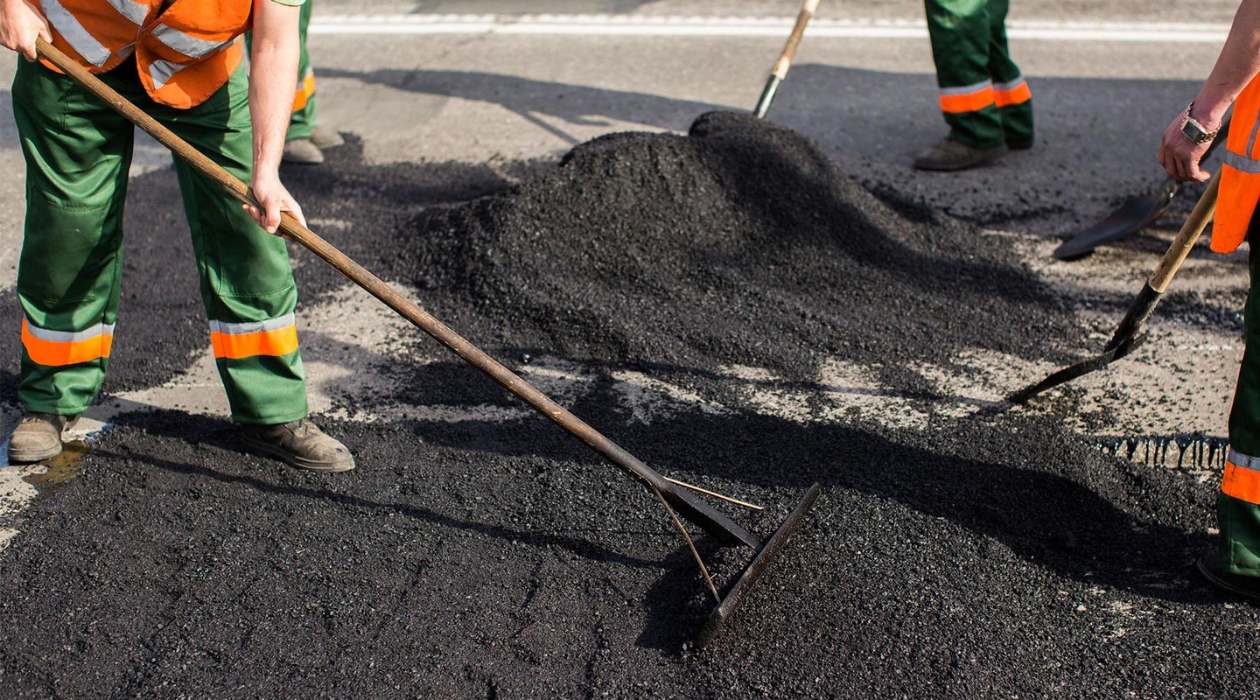
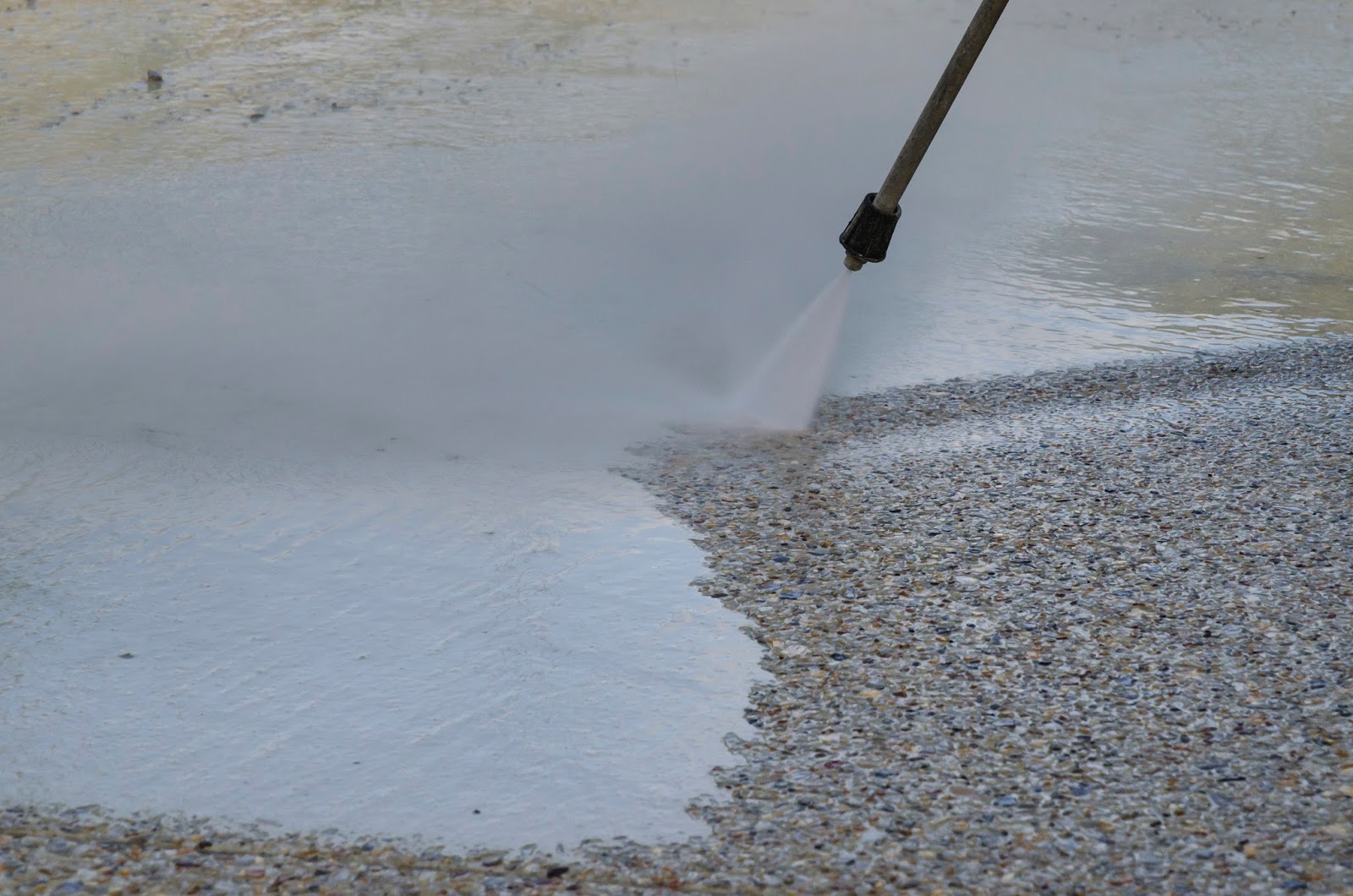
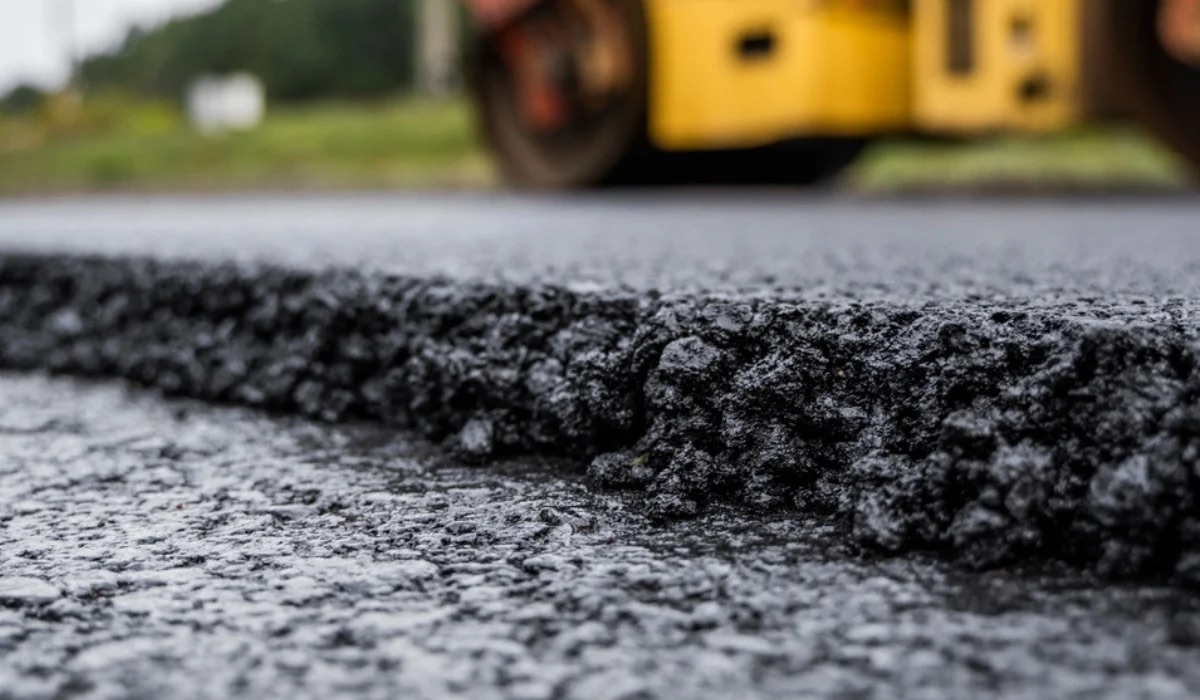
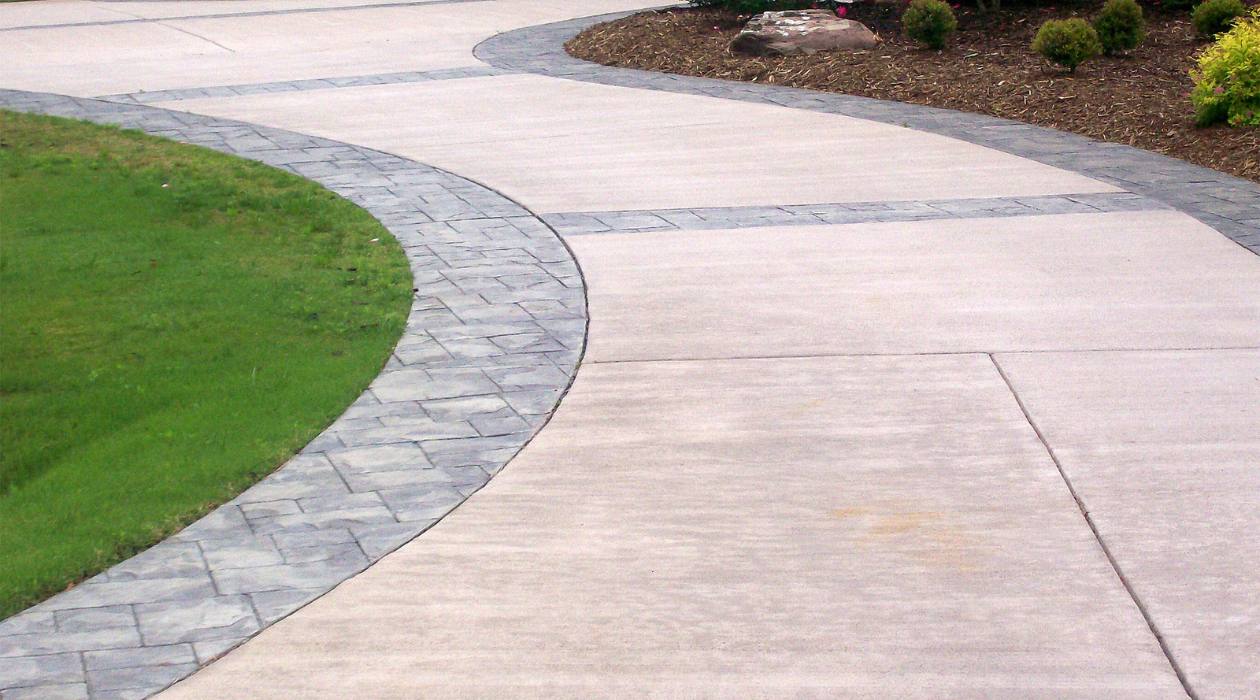

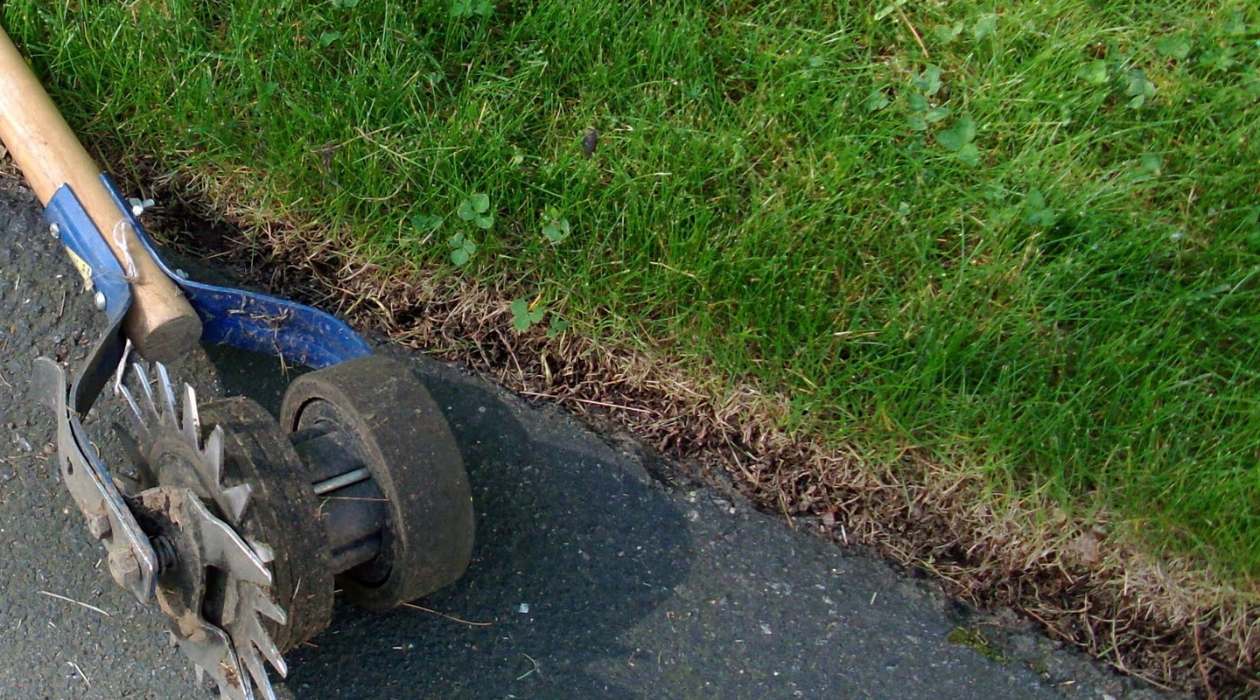
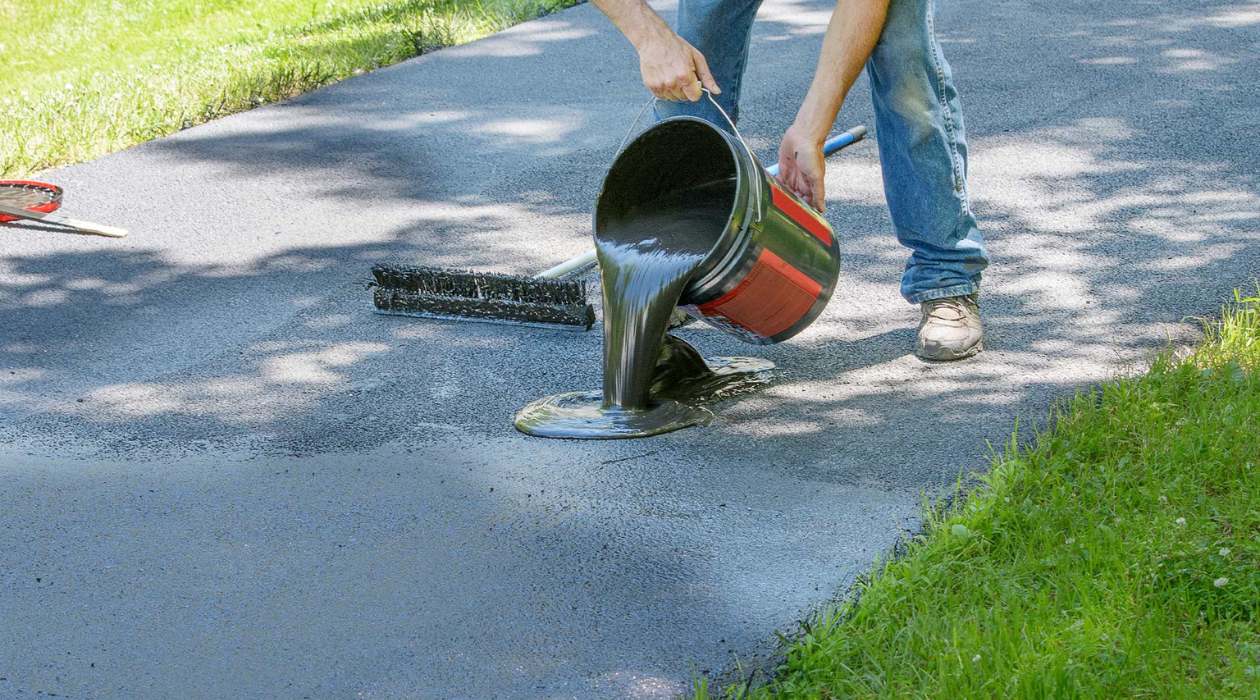
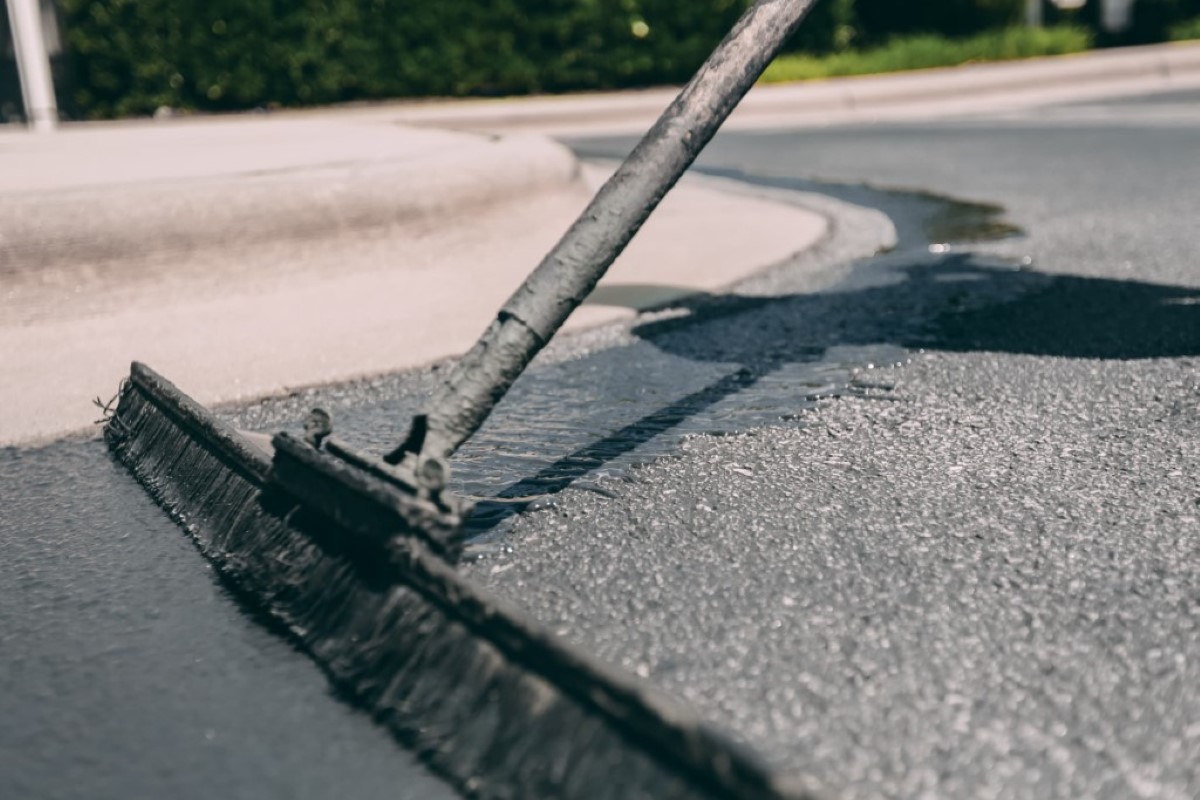
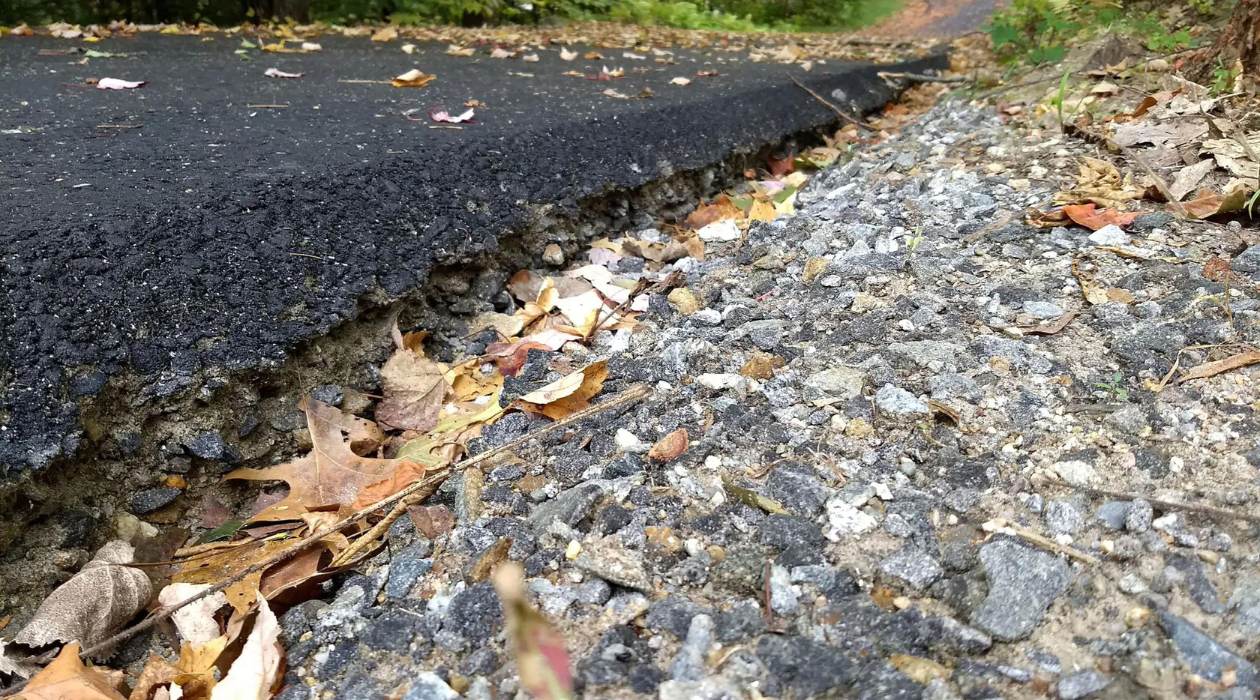

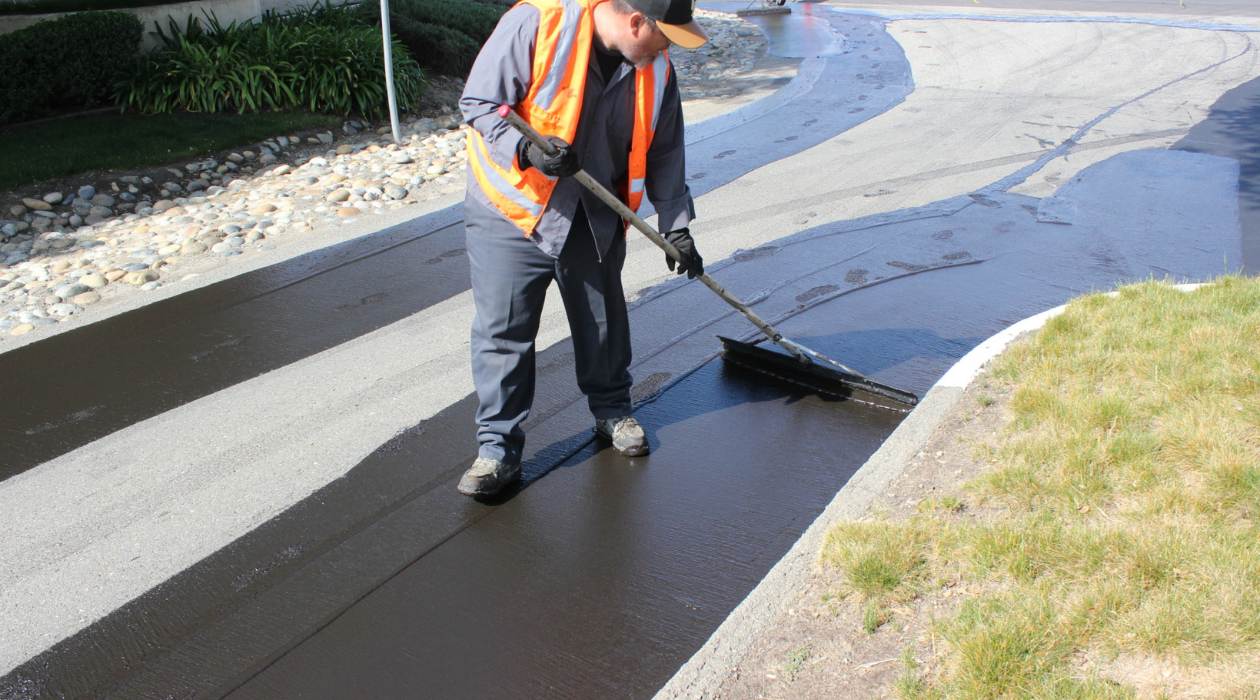
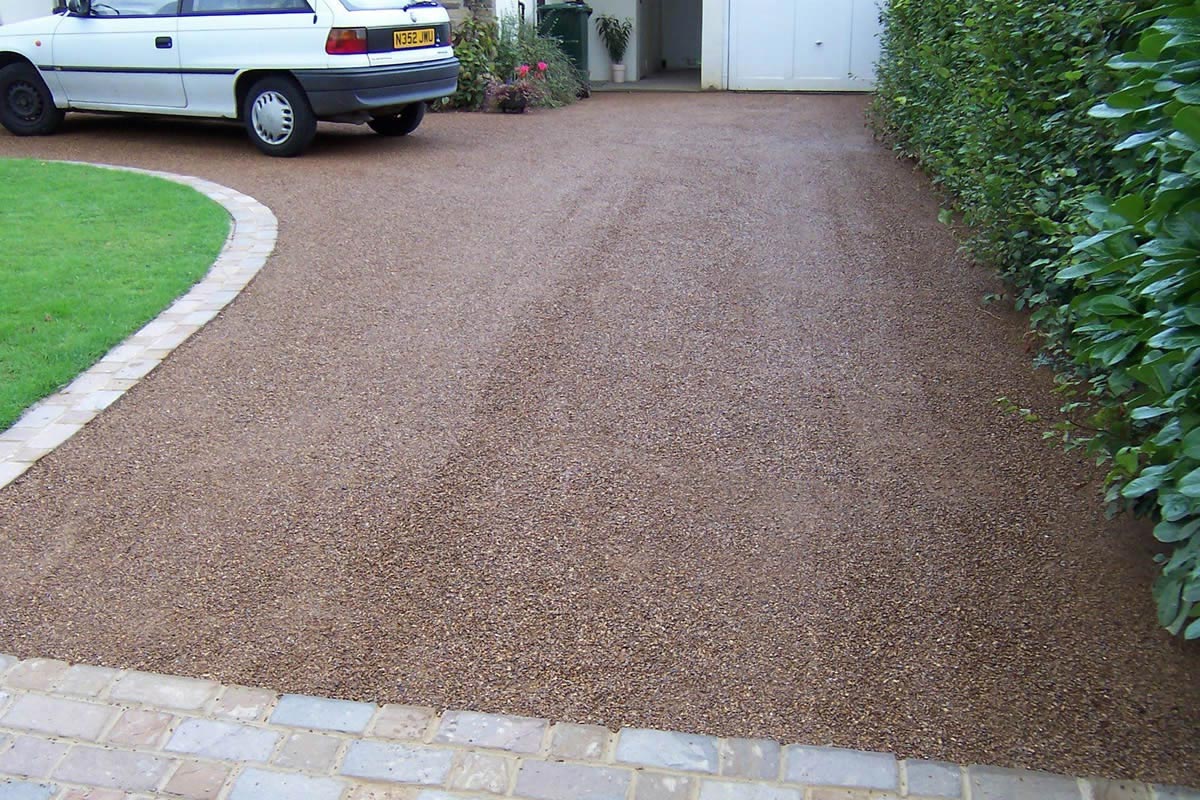
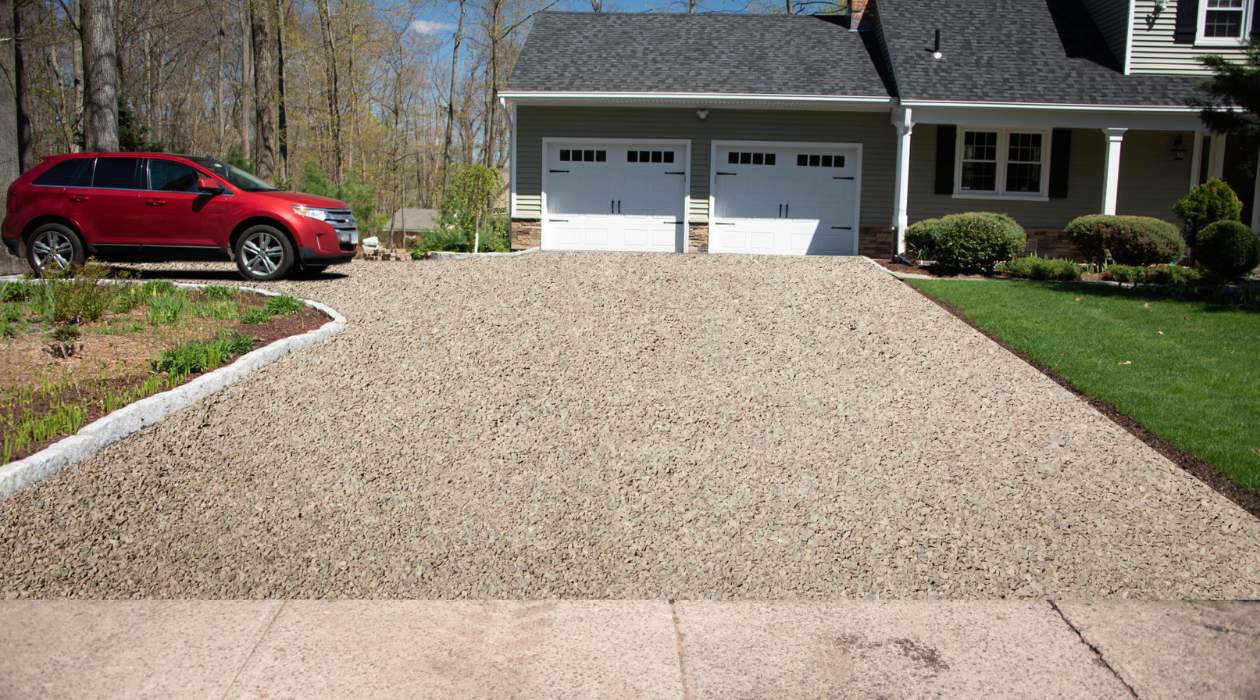

0 thoughts on “When Can A New Asphalt Driveway Be Sealed”